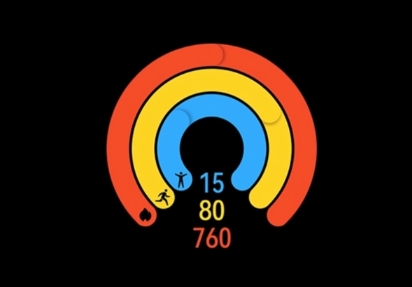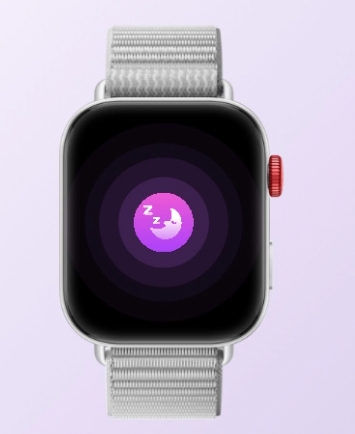
Smartwatches have evolved far beyond simple timekeeping devices. Today, they are mini health monitoring systems, capable of tracking everything from heart rate to sleep patterns. These features have made them increasingly popular among health-conscious individuals. But as we rely more on these devices for health data, the question arises: just how accurate are they? Can you trust the readings on your smartwatch as much as you would trust a medical device? In this article, we will explore the accuracy of various smartwatch health monitors and what you should keep in mind when using them.
Can You Trust Your Smartwatch’s Heart Rate Monitor?
Smartwatches typically use optical sensors, known as photoplethysmography (PPG), to monitor heart rate. These sensors detect changes in blood volume through light that is reflected or absorbed by your skin. By analyzing these changes, smartwatches can calculate your heart rate in real time. While this method is effective for casual fitness tracking, it is not as accurate as the electrocardiogram (ECG) technology used in medical settings. In controlled environments, smartwatch heart rate monitors can closely match medical devices. However, during intense workouts or activities where movement is constant, smartwatch heart rate accuracy can drop due to issues like poor sensor contact or excessive sweating. Devices like the watch D2 huawei, which are designed with advanced sensors, aim to improve this accuracy, but discrepancies still exist, especially under varying conditions.

Counting Steps or Missteps?
How Smartwatches Measure Steps and Activity
Smartwatches measure steps using built-in accelerometers, which detect motion and changes in speed. These sensors track your wrist movements to estimate the number of steps taken. Along with algorithms, the watch uses this data to calculate your overall activity level, including distance traveled and calories burned. While the step-counting technology in smartwatches has improved over time, it's important to understand that it doesn’t measure steps perfectly. The movements of your wrist may sometimes be interpreted as steps even if you're sitting or moving your arms for another reason. This can lead to occasional overestimations or underestimations of step counts.
Factors That Affect Step Count Accuracy
Various factors can influence the accuracy of step tracking. For instance, if you wear your smartwatch loosely, it may not detect movements as effectively, leading to missed steps. Additionally, walking on uneven terrain, pushing a shopping cart, or even carrying items in your hands can cause inaccuracies in the step count. Moreover, individual walking patterns differ, and the algorithms in a smartwatch may not account for all variations. As a result, someone with a shorter stride may find their step count overestimated, while someone with a longer stride may find the opposite. These limitations don’t make smartwatches useless for tracking activity, but they do suggest that users should view the data as a general estimate rather than an exact count.
Can Your Smartwatch Really Track Your Sleep?
The Science Behind Sleep Tracking Technology
Smartwatches use a combination of accelerometers and heart rate monitors to track sleep. By detecting your movements and heart rate variability, the watch can infer when you're asleep, how long you stay asleep, and how deep your sleep is. More advanced devices also incorporate algorithms to determine sleep stages, such as light, deep, and REM sleep. While this technology can give you useful insights into your sleep patterns, it's not without flaws. Unlike clinical sleep studies, which measure brain activity through electroencephalogram (EEG) readings, smartwatches rely on indirect data, which can sometimes misinterpret wakefulness as light sleep or vice versa.
Common Sleep Tracking Limitations and Accuracy Concerns
The main limitation of smartwatch sleep tracking is that it doesn’t directly measure brain activity, which is the most accurate way to determine sleep stages. This means that the data provided by your smartwatch should be taken with a grain of salt, especially when it comes to identifying deep sleep or REM sleep stages. Environmental factors such as changes in room temperature, noise, and movement in bed can also affect the accuracy of sleep tracking. Moreover, if you're someone who frequently tosses and turns or moves a lot in your sleep, your smartwatch may inaccurately classify these movements as wakefulness. While useful for general trends, smartwatch sleep tracking data is best used as a rough estimate rather than a precise measure of your sleep quality.

Blood Oxygen and Beyond
Blood oxygen sensors, or SpO2 sensors, have become a popular feature in many smartwatches. These sensors use light to measure the oxygen saturation level in your blood, which can be a useful indicator of respiratory health. However, the accuracy of SpO2 sensors in smartwatches can vary significantly depending on factors like skin tone, movement, and even the tightness of the watch on your wrist. Medical-grade pulse oximeters used in hospitals are generally more accurate than smartwatch SpO2 sensors, as they are specifically designed for medical use and undergo more rigorous testing. While a smartwatch can provide useful snapshots of your blood oxygen levels, it is not a substitute for professional medical devices, especially if you're monitoring a health condition like sleep apnea or chronic lung disease. In such cases, it’s always best to consult a healthcare provider.
Conclusion
Smartwatch health monitors offer an array of features that can provide useful insights into your daily activities, heart rate, sleep patterns, and even heart rhythm. However, it is important to understand the limitations of these devices. While they are excellent for general health tracking and can motivate you to stay active and mindful of your health, they should not replace medical-grade devices or professional consultations. For those who are looking for advanced health tracking capabilities, devices like the Huawei Watch D2 offer features such as blood pressure monitoring and SpO2 sensors. However, users should view these features as tools for better understanding their wellness, not as a substitute for professional medical advice. When it comes to your health, smartwatches can be a helpful companion, but accuracy still relies on the right context and understanding their limitations.